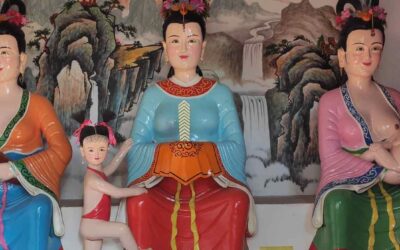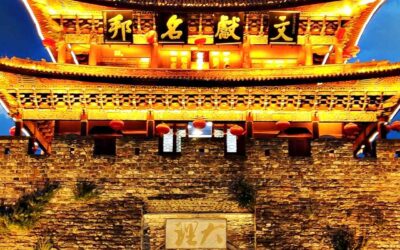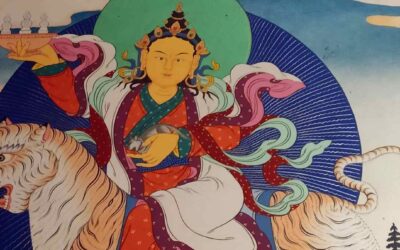The Character and Function of Music in Chinese Culture
In 1946 Bliss Wiant finished his Doctoral dissertation . The subject was “The character and function of Music in Chinese culture.” Some of his reflections are so interesting that I share with readers here some paragraphs.
Pag 3. Music, in the Chinese sense, is best defined by translating the two characters which mean music, namely: yin yue or tone pleasure. A single tone, as from a bell or a stone chime, may give pleasure and would therefore constitute music. The development of this conception of music has led the Chinese into somewhat different modes of expressing it.
Because of the emphasis upon the pleasure which a single tone or many tones may provide, there has also been a selection of sound-producing materials whose varied timbre brings joy to the listener…. In addition to the instrumental tone varieties, the human voice has also played an exceedingly important part in musical expression not only in actual singing of melody but in the inflections which the voice must use for correct speech.
Pag 4. The idea that music brings harmony between the ruler and his subjects, between different members of society, between various members of the family both past and present, between a sovereign and his predecessors, is found again and again. Such a potential brings great joy and satisfaction to all concerned. The type of music which is used by the people and in official government functions is an index to the moral standards prevailing at any given time.
Pag 5. Great musical establishments characterized the reign of some sovereigns such as that one of the Zhou Dynasty rulers who employed more than 1,100 men. Music for the court life, for the worship of heaven and earth, for memorials to ancestors and departed leaders, for state banquets and military celebrations, in fact, for almost every phase of official life, was provided.
The earliest mention of the formal establishment of an organization solely devoted to music and its function in government is during the reign of Emperor Wu (140-86 B.C.) of the Han Dynasty. He established the Yue Fu or Bureau of Music. All music masters lived and worked in this bureau. Soon after, the term yue fu became identified with the poetry which this bureau prepared for general use. Poetry was invariably chanted and often accompanied with instrumental music as well.
The dynasties which, after the Han Dynasty, magnified the use and function of music are:
– The Sui Dynasty (581-618 A.D.). An orchestra of 288 instruments together with singers and dancers were employed at court. By the end of this dynasty, the official record reveals that there were 30,000 musicians and dancers supported by the state.
– The Southern Song Dynasty (1127-1279). The official record reveals the astonishing fact that 1,120 songs were used by the government at such functions as the worship of the gods of the earth, fire, wind, rain, thunder, agriculture, silkworm, winter, dragon, and so on. Songs for festivities connected with the celebration of those scholars who had successfully passed examinations; memorials to the imperial dead; commitment exercises at the tomb, and the like were also provided.
Prayers for good harvest, to the sun and moon, to the honorable spirits, to welcome the holy likeness of ancestors, for the names of the five great mountains, for the seas and waters—all these had their musical settings. The actions of the emperor, of the princes, of officials at court gatherings and assemblies, of the parents of the emperor were accompanied with music. At the time of the construction of buildings songs were sung. Even when criminals were pardoned by the emperor did music function with appropriate songs. What an honorable place did music have.
Pag. 7. To a Chinese, music is a fundamental and integral part of the world and of the universe itself. The music of the heavens finds its response on earth in the life which is found here. Man uses music to express his inmost feelings ; it makes him a highly sensitive being. The perception of the ears and eyes becomes sharp; the action of the blood and physical energies become harmonious.
Pag 9. The streets of villages and cities abound in the music created by peddlars who not only sing of their wares but also use instruments whose tone quality identifies certain articles which they have for sale. Residents, all of whom live behind walls, depend upon these sounds to make them aware, not only of the articles which they sell, but also of the time of day, the day of the week or month, the season of the year. So regular are the peddlars in their daily routine and circuit and in the articles which they sell that they partially substitute for actual timepieces. In general, peddlars who sell edibles announce their wares by means of songs or melodic fragments.
Each peddlar composes his own melody. In the case of other sound-producing media there is no such freedom. For instance, the sound of a small drum indicates a cloth vendor; the clashing of two small, brass cups makes a sound that indicates the soft drink vendor; an instrument akin to a large tuning fork gives forth a twang which advertises the available services of a barber. There are forty kinds of such instruments. When they are all in action, the result is a veritable symphony of sound. Any person, unable to see a peddlar’s goods, could tell by the characteristic sound of his instrument just what he had to sell.
Last posts
Sexual aspects of Gu venom
Gu illness resulted from a contamination by gu poison, which a recent analyst has characterized as “an alien evil spirit which entered [the] body and developed into worms or some similar animal that gnawed away at the intestines or genitalia.” This poison was thought...
Sunset in Dali
No Words Fuxing Rd from the South Gate. Dali, Yunnan.Corner in Fuxing Rd, Dali, Yunnan.Night market at the south of the South Gate. Dali. YunnanLast posts
The five secret temples of the lamas in Lijiang
The five secret temples of the lamas in Lijiang Religions of Lijiang Although the city of Lijiang is known primarily for the Dongba religion practiced by the traditional shamans of the Naxi, also called Dongba, who with their rituals administered the religious and...







